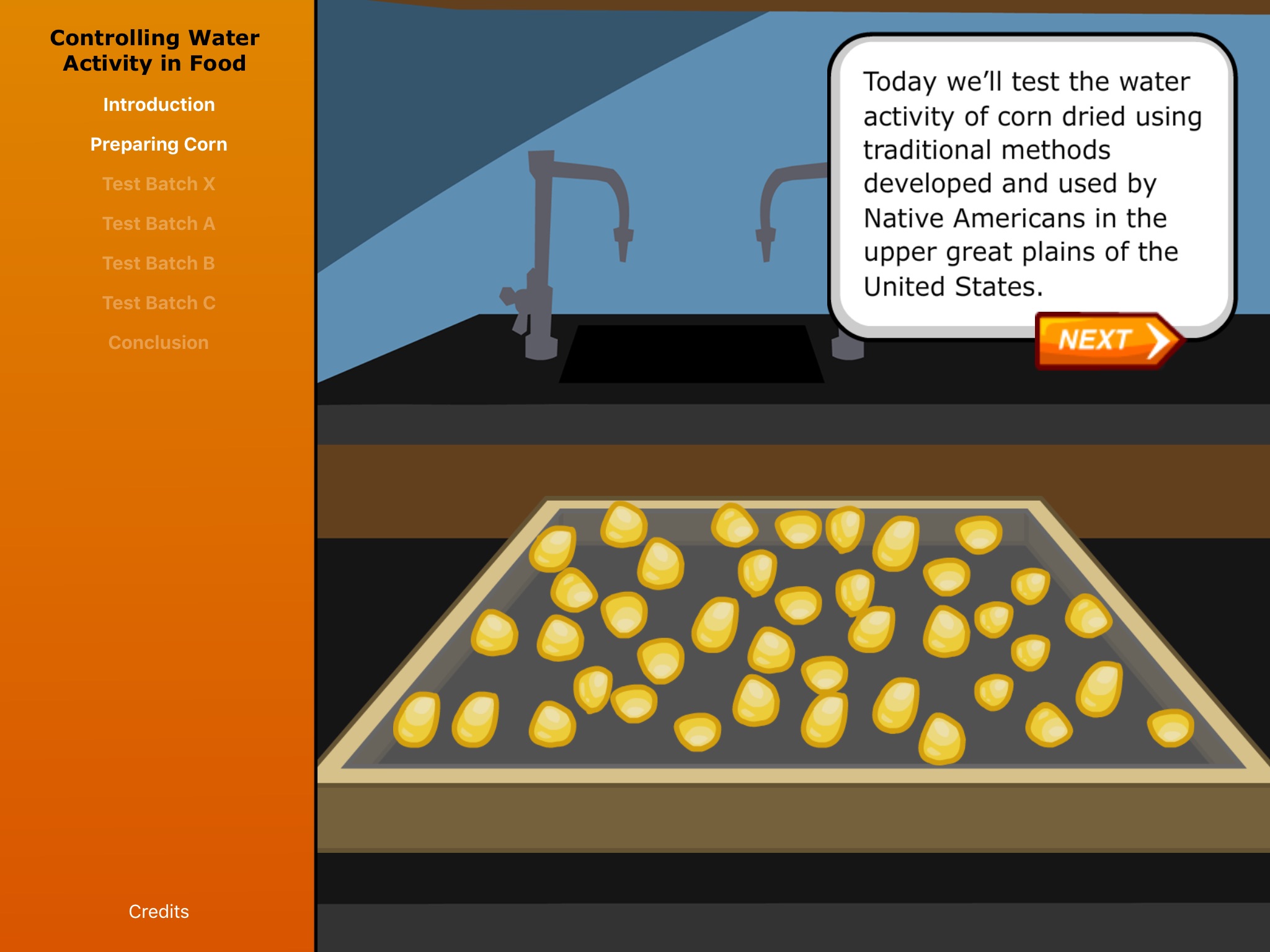
Virtual Labs: Controlling Water Activity in Food
Learn how controlling water activity (Aw) keeps food from spoiling. Then test Aw of dried corn before and after storage, using proper laboratory methods.
Virtual Labs interactive food science modules train high school and college students in basic laboratory techniques, in this case using water activity to control food spoilage and determine best conditions for storage.
Water activity is important to food preservation. When water activity is less than 0.6, almost all microbes, including bacteria, molds, and yeasts, stop growing. Vegetables are usually dried even further, to Aw 0.3 or 0.2, for quality and storage. Virtual Labs: Controlling Water Activity in Food explores a traditional method of preserving corn by drying. In this virtual laboratory, learners test water activity levels of dried corn and explore how they change under three different storage environments. The interactive guides users through the theory and practice of sampling a food product, using a water activity meter, and setting up replicates, to build familiarity with concepts and procedures used in real food science labs. Before beginning this lab, it may be useful to complete Virtual Labs: Understanding Water Activity.
This work was supported by USDA CSREES and USDA National Institute of Food and Agriculture under two Higher Education Challenge Grant projects: 2008-38411-19055 and 2011-38411-30625. © 2008-2016 NMSU Board of Regents. Collaborating universities South Dakota State University and New Mexico State University are equal opportunity/affirmative action employers and educators.



